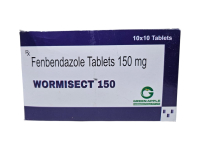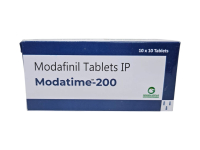
- Why is the analysis done?
- Antibody production
- Preparation for research
- Immunological analysis
- Biochemical method
- Specific tests for HIV infection
- How to donate blood for HIV and hepatitis
- Analysis readiness time
- Decoding the results
- Expiry date of analyzes
Every person should have a periodic blood test for HIV and hepatitis. These dangerous diseases are common all over the world and are transmitted in various ways, so the likelihood of contracting is quite high. In case of infection, it is very important to timely detect the pathogen and start therapy.
If the test result turned out to be negative, then you can not worry about the presence of infection in the body. However, in this case, a complete medical examination is required, since the alarming symptoms are caused by another pathology that must be identified.
Why is the analysis done?
People decide to get tested for HIV and hepatitis for a variety of reasons. Most often, such testing is mandatory for patients who are preparing for surgery, and women who are registered for pregnancy.
Another important reason is unprotected sex with an unfamiliar partner. In addition, regular testing is mandatory for medical and educational workers, as well as for employees of production and service sectors.
At the first warning signs, it is necessary to conduct a laboratory study. This helps to confirm or exclude the fact of infection. With the development of HIV and hepatitis, the liver gets the first "blow". Any abnormalities in the liver is a reason to be alert and get tested for HIV, hepatitis and RV.
Antibody production
The human immune system is a unique indicator of health status. Our body produces special cells - antibodies that help fight a variety of viruses and infections. The production of antibodies is a rather long process (from 14 to 22 days), and the presence of bad habits slows down the production of protective cells.
If an analysis is carried out between the alleged infection and the appearance of antibodies, then even a negative result will not guarantee the absence of the pathogen in the body. The virus carrier is potentially dangerous to others, therefore, after contact with an infected person, the test should be taken no earlier than on the 23rd day. In this case, the result will be reliable.
Preparation for research
Experts strongly recommend donating blood on an empty stomach, regardless of the purpose of the analysis. It is necessary to arrive at a medical institution as early as possible - as a rule, laboratories work from 8 am to 12 noon.
Dinner on the eve of the study should be light so that the food can be absorbed. In addition, there are a few more recommendations that are worth following:
- Sit quietly for 15 minutes before drawing blood.
- Avoid physical activity approximately 30 minutes before donating blood.
- Try to stay in a calm emotional state.
- If possible, do not take medications before testing.
- Eliminate alcoholic beverages three days before the study.
For those who are preparing to donate blood for HIV, hepatitis and RW, experts advise to adhere to a special diet for several days. At this time, citrus fruits, fatty foods, spicy and spicy foods should be excluded. Foods with a high content of orange pigment can affect the accuracy of the result, so they should also not be consumed. Immunological analysis
Immunological analysis
During an immune test for HIV, hepatitis and syphilis, the specific interactions between antibodies and antigens are studied. The targeted nature of the study allows you to determine whether markers of hepatitis are present in the blood. Immunological analysis also helps to establish a blood group and identify parasitic diseases and hormonal disorders.
Modern medical institutions offer to undergo a verified study by the immunoblot method. This test combines ELISA with electrophoresis and is therefore considered very effective. The immunoblot method allows you to group the pathogen antigens by molecular weight.
Biochemical method
Biochemical analysis helps to determine if there are any metabolic disorders. In addition, with the help of this study, you can assess the degree of liver damage. Most laboratories can do this test.
What indicators do specialists pay special attention to:
- Glucose level. Exceeding the norm, indicators signal liver pathologies, diseases of the immune or endocrine systems.
- Potassium level. An increased concentration of potassium is a sign that a hepatitis agent is present in the blood. It has a negative effect on the kidneys and causes dehydration.
- Albumin level. An increased content of albumin indicates liver and kidney damage.
In the presence of the causative agent of AIDS, biochemical analysis shows a reduced number of leukocytes and platelets at a high rate of connection of erythrocytes.
Specific tests for HIV infection
A patient who has decided to be tested for HIV and hepatitis should be told about the specifics of the procedure by the doctor. PCR is one of the specific diagnostic methods that allows you to isolate the DNA and RNA of the pathogen. During the study, the components of the blood plasma are subjected to special processing. This helps to increase the concentration of the virus molecules.
Today, patients have the opportunity to undergo express testing at home. A person concerned about alarming symptoms can either confirm their assumptions or refute them. If the test result is positive, then the patient needs to be re-tested in the laboratory.
How to donate blood for HIV and hepatitis
Those who are going to donate blood for HIV and hepatitis for the first time have a natural question about the peculiarities of the procedure. The first thing to say is that performing a combined analysis is a routine process. You can go through the study both anonymously and with an identity document.
According to the rules of preparation, the patient should sit for a while before taking blood, then go to the treatment room, bare his arm to the elbow and try to relax. For analysis, a healthcare professional needs to take 5 ml of blood and send it to the laboratory.
Analysis readiness time
A person who is awaiting test results for HIV, hepatitis or syphilis should be patient and wait. The timing of readiness depends on the sample:
- ELISA - from 3 to 9 days.
- Immunoblot - from 2 days.
- Express analysis - 10 to 15 minutes.
- PCR analysis - from 2 to 14 days.
The timing varies, and how long the study will take should be clarified in the laboratory where the blood was taken. When contacting a government agency, you can wait for results within a month due to the large number of patients.
Decoding the results
When passing the enzyme immunoassay, the patient receives a form that says "Negative" (if no antibodies were found). If there are antibodies in the form, there is an inscription "Positive", and in this case, it is recommended to undergo a re-examination.
Normal indicators
To determine valid antibodies to HIV, doctors use PCR and ELISA, the efficiency of which is 99%. ELISA is an affordable research method at an affordable cost. For the analysis for HIV and hepatitis B and C, blood taken from a vein on an empty stomach is required. After 5-10 days, the ELISA results show whether there are antibodies in the patient's body if more than two months have passed since the infection. Actual antibodies are present in the saliva and urine of the virus carrier, but this amount is not enough to obtain reliable results.
When is hepatitis B testing necessary?
- When planning pregnancy, preparing for vaccination, detection of HBs antigen, elevated ASAT (ALAT) levels.
- To identify the cause of chronic liver and gallbladder diseases.
- With symptoms characteristic of hepatitis B.
A specific blood test should be taken by donors and patients at risk. Analysis results are indicated by the following symbols:
- HBsAg, HBeAg;
- anti-HBs, anti-HBc (core) IgG, anti-HBc (core) IgM;
- HBV DNA.
Tests for hepatitis C are prescribed in the same cases as for hepatitis B. If antibodies are not detected, then the patient is healthy. As for HIV, a negative result is possible at the beginning of the infectious period. The same applies to the seronegative variant of hepatitis C.
False positive result
Not a single research method can be called absolutely accurate. With a false-positive result, there are compounds in the blood, the structure of which is similar to that of the pathogens of HIV and hepatitis. In this case, the doctor prescribes a repeated analysis for the patient or chooses a more accurate research method. If HIV is suspected, an immunoblot is performed.
To make a diagnosis, the doctor needs to be confident in the accuracy of the data obtained, otherwise the treatment will be ineffective. A false positive HIV test result can be caused by:
- History of sexually transmitted diseases and / or viral hepatitis.
- Allergic reaction.
- Inflammatory processes and neoplasms in the kidneys and intestines.
- Hormonal disorders, changes in the enzyme composition of the blood.
In hepatitis, the chance of a false positive is 15%. The reasons are:
- Medication.
- Features of immunity.
- Increased amount of cryoglobulins.
- Autoimmune diseases.
- Low antibody concentration and low viral load in the early stage of hepatitis.
- The presence of heparin.
- Pregnancy.
- The presence of tumors.
- Severe infectious diseases.
- Human factor - mistakes of medical staff during storage, transportation and analysis of biomaterials.
- Influenza and tetanus vaccination.
- The presence of functionally defective proteins in the blood.
Use of diagnostic tools from one manufacturer helps to avoid inaccurate results.
Positive result
In acute hepatitis B, tests reveal markers HBeAg, HBV-DNA, HBsAg (in some cases, anti-HBc (core) IgM and IgG antibodies). The presence of anti-HBe (with negative HBeAg) is a sign of the chronic stage of the disease. In the blood of a convalescent patient, anti-HBs, anti-HBc (core) IgG, anti-HBe can be detected.
Experts take into account both qualitative and quantitative indicators obtained as a result of an extended analysis for hepatitis B. Usually, the patient is offered to undergo rapid testing only for antibodies or antigens. These data are sufficient for screening. A study in expanded form is assigned if the result is positive.
One of the most popular diagnostic methods is PCR analysis, which can be used to identify the DNA and RNA of the virus. ELISA and PCR are used in a hospital, since they require special equipment. At home, only an express analysis is done, but the result in this case is considered indicative and requires confirmation.
If hepatitis C is suspected, the patient is sent for an ELISA to check the blood for the presence of immunoglobulins G or M. If immunoglobulin G is found, then this is a sign of an active stage of the disease. The presence of the G-compound does not confirm the presence of the hepatitis C virus. This component is found in the blood of those people who spontaneously recovered or were vaccinated. It is possible to speak of a positive result if the following are detected in the blood:
- anti-HCV IgM;
- anti HCV IgG;
- Ag HCV - the presence of pathogens of hepatitis C;
- RNA VGS.
In HIV, ELISA shows a positive result when detecting IgM antibodies, which means an incurable condition. The more time elapses from the moment of infection, the higher the likelihood of detecting these antibodies. 84 days after infection, the rate reaches 95%. Additional studies may be ordered to confirm.
Expiry date of analyzes
Because HIV and hepatitis are transmitted in different ways, test results are considered valid within a certain period of time. After these terms, a second study is required.
Standard expiration dates:
- General analysis - from 7 to 14 days.
- Biochemical analysis - from 7 to 14 days.
- Testing for glucose levels - from 7 to 14 days.
- HIV test - 24 weeks.
- Syphilis test - 12 weeks.
The shelf life of a laboratory blood test does not exceed 14 days, after which a repeated test for HIV and hepatitis is prescribed.
When testing for HIV, specialists study the blood serum to get the most reliable result. If the suspicions were confirmed, then in the future the patient will have to follow all medical recommendations and adhere to a healthy lifestyle. This will allow him to live a fulfilling life and feel good about himself.






























